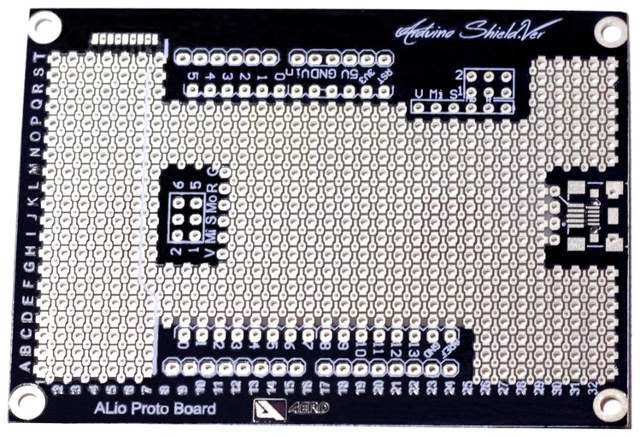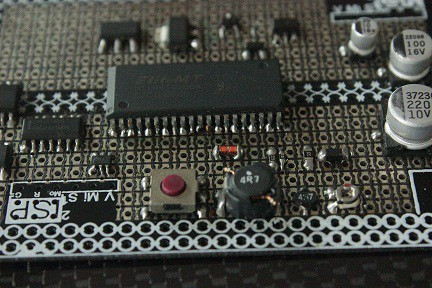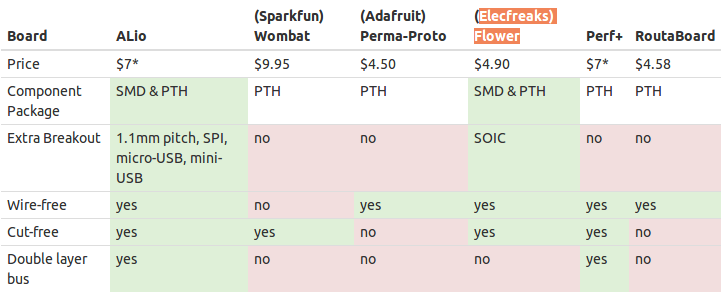Perfboards and stripboards are very useful to design your own simple electronic boards without having to design your own board from scratch. However, you have to select through hole or DIP components, as – while possible with some efforts – such boards are not designed for SMD components.
AERD, an open source electronic development startup based in Indonesia, has designed ALio prototyping boards supporting both through hole and SMD components, as well as some common connectors/accessories such as micro SD card, USB connector, and so on.

Three versions of the board (basic, embedded, Arduino) are available with the following specifications & features:
- Fits SMD and PTH components at the same time.
- Double layer bus (top and bottom)
- Other components/headers
- All versions – 1.1 mm pitch pad for micro SD/SD card breakout
- Embedded & Arduino only – mini & micro USB pads, 1x SPI breakout
- Arduino only – Arduino header, one extra SPI breakout (2 in total)
- Dimensions – 88.2 mm x 65.3 mm x 1 mm
- PCB – FR4 0.8 mm
- Finishing – HASL-lead
- Finished copper – 1 Oz Cu with black masking and white silkscreen.
ALio’s double layer bus allows you to minimize jumper wire usage, but I feel it might be a little confusing to use, and could lead to mistakes. Maybe it’s just a matter of getting used to it. An example with an early prototype of the board mixing some SMD and through hole components is shown below.
 ALio is actually not the first board to support both SMD and FTH components, as Elecfreak Flower board also does, but has a different design with one side of SMD and SOIC components, and another for PTH components, but according to the comparison below does not support double layer bus, and does not feature micro/mini USB footprints that are convenient for powering the board, nor the micro SD card pads.
ALio is actually not the first board to support both SMD and FTH components, as Elecfreak Flower board also does, but has a different design with one side of SMD and SOIC components, and another for PTH components, but according to the comparison below does not support double layer bus, and does not feature micro/mini USB footprints that are convenient for powering the board, nor the micro SD card pads.
You can get ALio boards via Crowdsupply, with all rewards at $14 for both ALio boards (either basic, embedded or Arduino edition). Shipping is free to the US, $7 to the rest of the world, and delivery is scheduled for February 2018.

Jean-Luc started CNX Software in 2010 as a part-time endeavor, before quitting his job as a software engineering manager, and starting to write daily news, and reviews full time later in 2011.
Support CNX Software! Donate via cryptocurrencies, become a Patron on Patreon, or purchase goods on Amazon or Aliexpress





